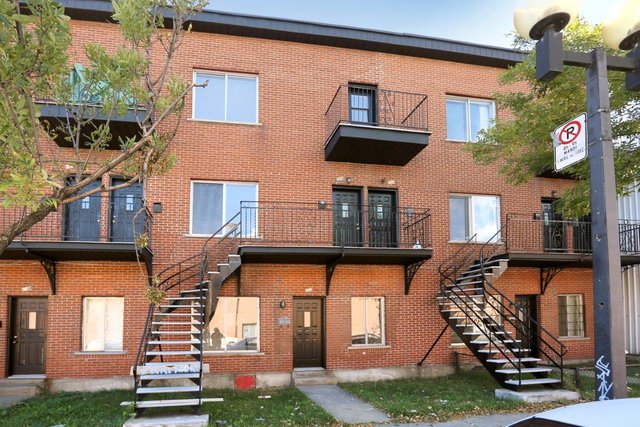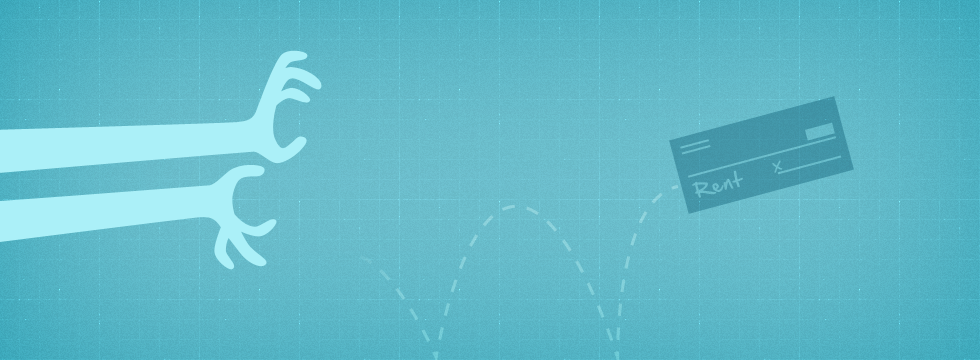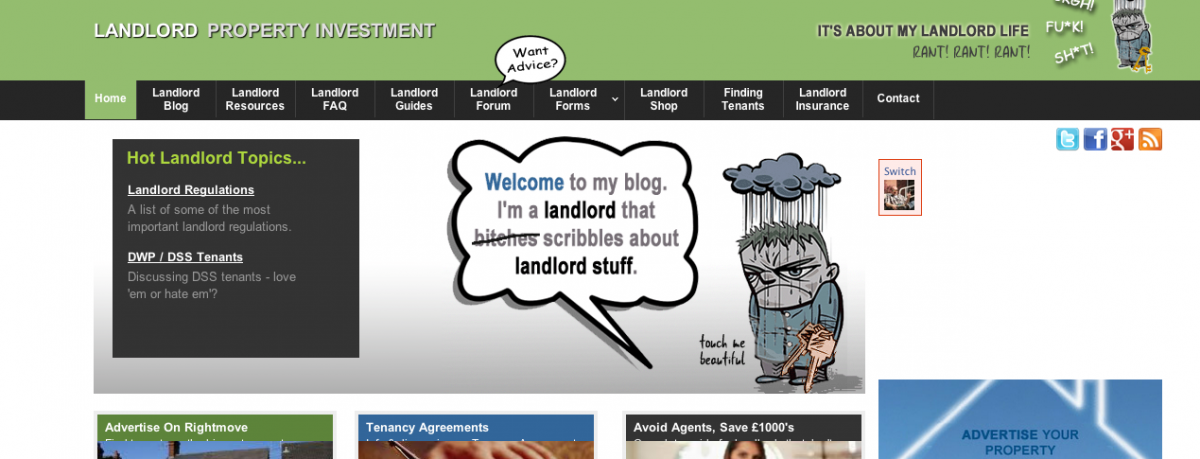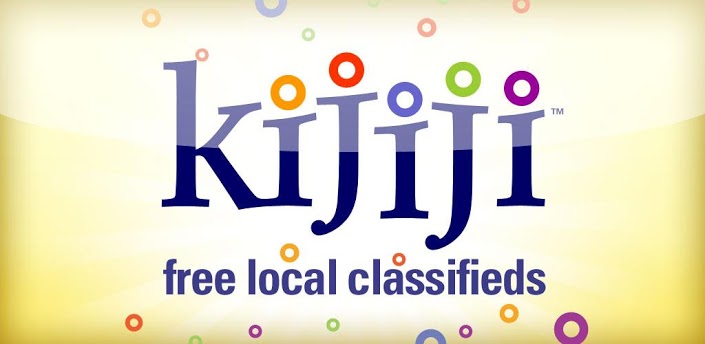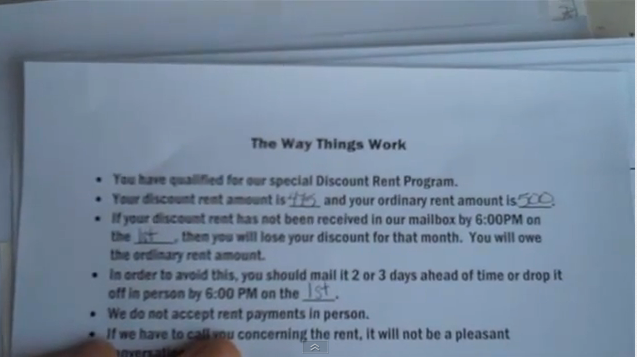The business of owning rental property includes a very important element in the relationship between a landlord and their tenants. Getting paid the rent.
You’re a landlord and your tenant’s check just bounced. This is the beginning of what could be a real pain. Believe it or not, many private residential landlords in Ontario aren’t that well equipped to handle the situation and don’t know the legal route to go about addressing it. Part of this is because the process is ridiculously complicated if you’re going the board route. I don’t see how anyone can disagree with this, but if you do, feel free to comment here. I’ve personally done this 3 times since becoming a landlord and came away from the first time feeling like learning how to fly a commercial airliner would be simpler. I wanted to put this together to simplify this process with the Ontario LTB for readers and users alike, because it doesn’t have to be this hard. I just think someone needs to boil it down. That’s why I had a great conversation today with The Terminator. No, not Arnold. I’m talking about April Stewart over at Landlord Legal.

April’s an expert when it comes to this kind of thing, and she’s seen a lot of small landlords in Ontario make a big mistake with the basics when you don’t get paid. Serving an N4 to a tenant in arrears and submitting an L1 to the Ontario LTB is not easy. If it were, she wouldn’t be in business. If you’re not familiar with April – you should be. She dropped some valuable tips through the course of writing this post and she’s a passionate advocate for landlord’s rights.
Ok – first things first. Bookmark this link. This is the page at the Ontario Landlord and Tenant Board for termination notices. This is where you’re going to print and use the forms required to address an issue of non payment – not to mention a whole bunch of other stuff. We’re just focusing on what to do when you don’t get paid here though, for now.
1: Reaction and Preparedness with an N4
Whether you’ve received a post dated bum check (which can take up to a few days for you to realize with a bank) or whether the tenant pays you by an agreed date and simply has not given you the rent, it’s important that you’re always prepared. If a check bounces, you need to hop on this right away. If it’s 12:01 a.m. on the second day of the month, and you still don’t have money – you need to react. This is the single biggest mistake landlords will make. Not reacting quickly enough. I’ll get into this in a little more detail further into this post. You need to fill out two of the N4 forms. One for the tenant, and one for you (for your records). Always fill out two. Here are the other important things you need to do.
- Know the “termination date“. That’s the date you’ve indicated, according to the law, that acts as kind of a line in the sand. The termination date is: 14 days after the landlord gives you the notice, if you rent by the month or year, or 7 days after the landlord gives you the notice, if you rent by the day or week. As an example. If they pay you on the first of the month, and at 12:01 a.m. on the 2nd of the month you still don’t have your rent, you would list the termination date as the 16th if they rent by the month or year, and the 9th if they rent by the day or the week. Ensuring that the termination date is correctly indicated is hugely important when filling out an N4. Make sure they’re correct. If you get paid by post dated check, and the bank takes 3-5 days to show the check as NSF – your dates would need to fall in line with this. It’s not retroactive to the first of the month – it’s 14 or 7 days from the service of the notice. If you make an error with dates, the board reserves the right to consider the notice improperly served and you’re back at square one if that happens.
- Don’t make a mistake with serving the notice. Taping a notice to the door of a unit will get you in trouble and can lead to a dismissal of your application. The best route with this, is to personally drop it off in a mailbox, and record the date of the service of the notice. One of the ways you can do this, is by using the Renting Well logbook (shameless plug) and plugging a scan of your copy into the logbook entry. Keep your copy of the notice as a duplicate. Have a timeline of events. Here’s another few tips courtesy of April Stewart. If the mailbox is shared by other tenants, don’t serve it that way. If the mailbox is only for newspapers and flyers and not Canada Post mail, don’t serve it that way either. You can serve under the door of a unit, as long as the envelope goes all the way into the unit – but whatever you do, don’t open the door and toss it in, as that’s illegal entry! For out of town landlords who can’t serve personally, hire a reputable process serving company, not a fly-by-nighter. If you must serve by regular mail or Express Post, add 5 days to the termination date – another common mistake that will deem your N4 defective if not done right! April recommends NEVER serving via Registered Mail – it’s outdated and tenants tend to refuse the delivery in any event.
At this point, the tenant has either 14 or 7 days to pay you. Let’s just assume they don’t pay you though. Booya. You need an L1.
2. The L1 form – Application to evict a tenant for non-payment of rent and to collect rent the tenant owes
 This part kind of sucks, mainly because you need to file with the board and dish out $170 filing fee. The good news is that if you win, the tenant will have to pay that all back to you. Keep in mind, this is if you win a judgement.
This part kind of sucks, mainly because you need to file with the board and dish out $170 filing fee. The good news is that if you win, the tenant will have to pay that all back to you. Keep in mind, this is if you win a judgement.
The form is relatively straightforward, however, a couple of things to note:
- You need to submit this application at the least the DAY AFTER the termination date as indicate in your N4. This is super important. If you do it before, you’re back to square one.
- You need to include your copy of the N4 your served the tenant, as well as your certificate of service for the N4.
- Make sure your dates are correct, your math is right, and that you’ve signed the form.
I always recommend visiting the LTB office in your city and filing the application personally. Do it in person. Know why? They’ll issue a hearing date and give you the essentials you’ll require to serve your tenant the same day. Otherwise, you’re waiting for it to be processed and then sent to you via the mail – and that’s just a whole bunch of extra days you don’t need tacked onto the whole thing. Here’s a list of the offices in all of Ontario. I’ve experienced the first hand pain in the butt of faxing it in, and then it not being received by the office for whatever reason. Do it in person if you can. If you fax it in, it could take a few days if not longer.
You’ll receive a hearing notice (for both you and the tenant), a receipt of your payment of the filing fee ($170), and a certificate of service – what you’ll need to provide the tenant at least 10 days before the hearing. This is another one of those things where I suggest ensuring the service has been done personally. If you can “give” it to the tenant in person – great. Don’t make a mistake with serving the notice of hearing. Taping a notice to the door of a unit will get you in trouble and can lead to a potential dismissal of your claim. Drop it in the mailbox if you can’t get them in person. Again, If the mailbox is only for newspapers and flyers and not Canada Post mail, don’t serve it that way either. You can serve under the door of a unit, as long as the envelope goes all the way into the unit – but whatever you do, don’t open the door and toss it in, as that’s illegal entry!
Again, the logbook in Renting Well is handy for things like this. Having a timeline of when the payment was late, the serving of the N4, the application of the L1, and ultimately the notice of hearing and the certificate of service in a nice little packet of chronological info with notes is helpful in organization when you do visit the board. Even saving scans of the documents ensures you’re all up to speed in one spot. You don’t have to go by memory, you don’t have to juggle paperwork, and it’s useful when referencing dates.
When the hearing date comes – and assuming your tenant shows up – one of two things is going to happen. You’re going to be offered mediation or you’re going to go into your hearing and sit in front of an adjudicator. If you’re at this point, you’ve followed the steps correctly.
Do you have any stories about an N4 and an L1 in Ontario? Share them!
